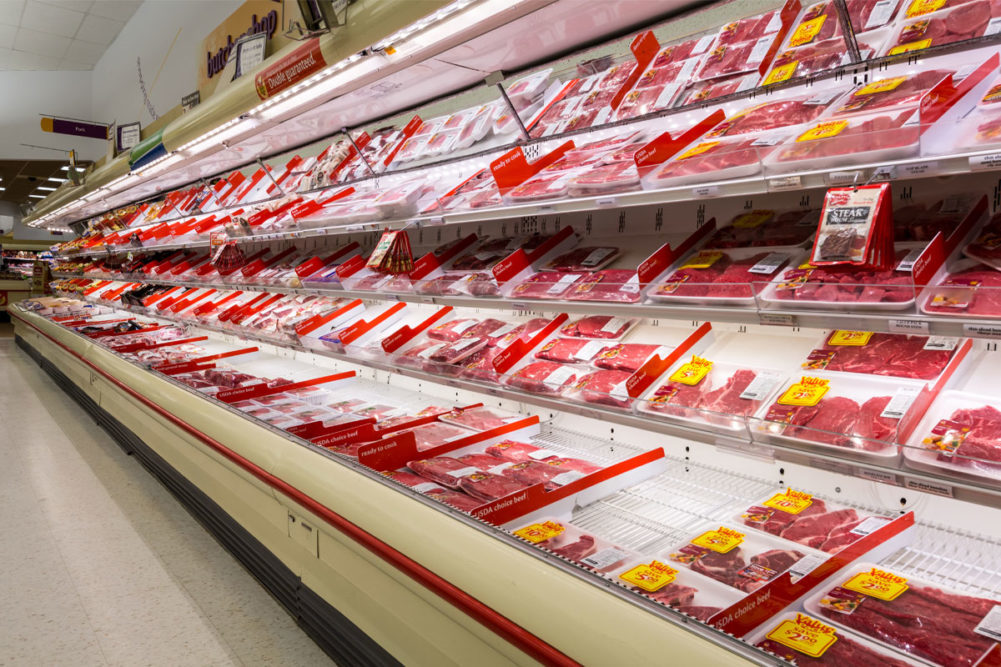WASHINGTON — The US Department of Agriculture (USDA) announced the finalization of a rule for the voluntary ‘Product of USA’ label claim for meat, poultry, and eggs that only derive from animals born, raised, slaughtered and processed in the United States.
The new rule would prohibit misleading US origin labeling in the market and ensure the information that consumers receive about where their food comes from is truthful, according to the agency.
“Today’s announcement is a vital step toward consumer protection and builds on the Biden-Harris Administration’s work to bolster trust and fairness in the marketplace where smaller processors can compete,” said Agriculture Secretary Tom Vilsack. “This final rule will ensure that when consumers see ‘Product of USA,’ they can trust the authenticity of that label and know that every step involved, from birth to processing, was done here in America.”
USDA noted that the “Product of USA” label claim will not require pre-approval from USDA’s Food Safety and Inspection Service under the new rule. However, the claim would need documentation on file for the agency to verify.
The final rule also noted that other voluntary US origin claims will need to include a description on the package of the preparation and processing steps that occurred in the United States upon which the claim is made.
An updated guidance for the voluntary US origin label claims was also published by the USDA to provide examples of claims and types of documentation that establishments may maintain to support the claims.
The guidance will be open for public comment for 60 days after publishing in the Federal Register. According to the USDA the labeling rule was supported by petitions, thousands of comments from stakeholders and data taken from a nationwide consumer survey.
Following the voluntary rule announcement, the Ranchers-Cattlemen Action Legal Fund, United Stockgrowers of America (R-CALF USA), said the action had been needed since the congressional repeal of mandatory country of origin labeling (MCOOL) in 2015.
“We welcome the end of this era of consumer deception,” said Bill Bullard, chief executive officer of R-CALF USA. “No longer will multinational meatpackers be allowed to trick consumers into believing that foreign beef was produced by United States cattle farmers and ranchers. While this is an important step in the right direction, Congress needs to pass MCOOL as quickly as possible to require all beef sold in grocery stores to be labeled as to where the animal from which the beef was derived was born, raised and slaughtered. Only then will consumers be informed as to which beef was produced by American cattle farmers and ranchers and which beef was produced under some foreign country’s food safety regime.”
The National Cattlemen's Beef Association (NCBA) expressed more support for the action and its potential effects on domestic and trade partners.
“NCBA has been committed to finding solutions to this problem ever since a producer-led NCBA working group raised the alarm, years ago, that imported beef could be mislabeled as a Product of the USA incorrectly at the end of the supply chain," said Kent Bacus, executive director of government affairs for NCBA. "We appreciate USDA’s effort to address this loophole. During the implementation period, NCBA’s focus will remain on ensuring that these changes result in the opportunity for producer premiums while remaining trade compliant.”
Senator Mike Rounds (R-SD), a longtime advocate for proper "Product of USA" labeling, was pleased with the step taken by the USDA but also stressed the need for MCOOL to pass soon.
“While we acknowledge the magnitude of this ruling, there is still more work to be done," Rounds said. "We need to address meat packer concentration and Mandatory Country of Origin Labeling for beef in order to restore transparency and fairness to the cattle market. The work must continue, and I remain committed to fighting for American ranchers and consumers.”
After hearing the news, Canada’s Minister of Agriculture and Agri-Food, Lawrence MacAulay, and Mary Ng, the Canadian minister of international trade, issued a joint statement expressing their concerns about how this move could disrupt the integrated North American meat and livestock supply chains.
"The meat and livestock sectors in Canada and the United States work closely together, supporting food security as well as local and regional food systems," the officials said. "Our indispensable relationship allows producers, processors and consumers on both sides of the border to benefit from efficient, stable and competitive markets, while ensuring a reliable supply of high-quality products. We are disappointed that the final rule does not appear to take into account the concerns we have continually brought forward related to our unique and important trading relationship. Canada intends to raise this during the agriculture ministers trilateral meeting with United States and Mexico scheduled to take place in Colorado later this month."
Along with the labeling declaration, the USDA said it would award $9.5 million to 42 projects through its Local Meat Capacity (LocalMCap) grant program, which is designed to expand the industry’s processing options.
“The Local Meat Capacity grants are addressing critical processing infrastructure needs for local and regional livestock and poultry producers, ensuring their products get to market efficiently and cost effectively, which supports local economies, new jobs, and more choices for consumers,” Vilsack added. “USDA is also committed to boosting the farmer’s voice in our seed patent system and enforcing the disclosure laws on the books as we deliver more and better choices for farmers.”
The agency said this Local MCap program was part of the Biden Administration’s $1 billion investment to expand independent meat processing capacity around the country as it laid out in 2022.



